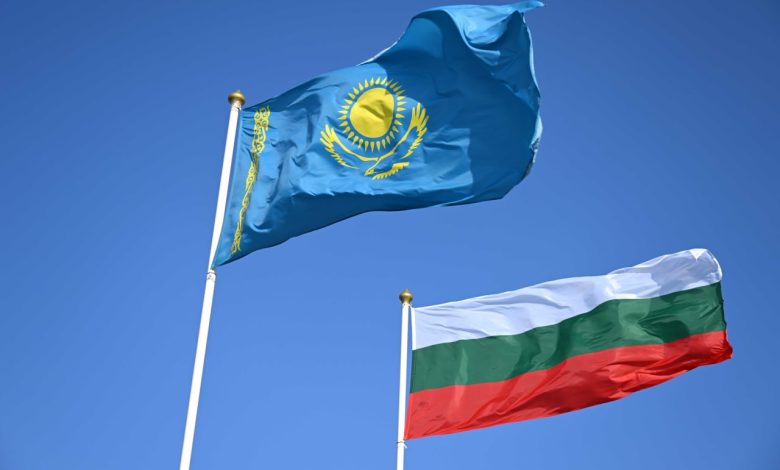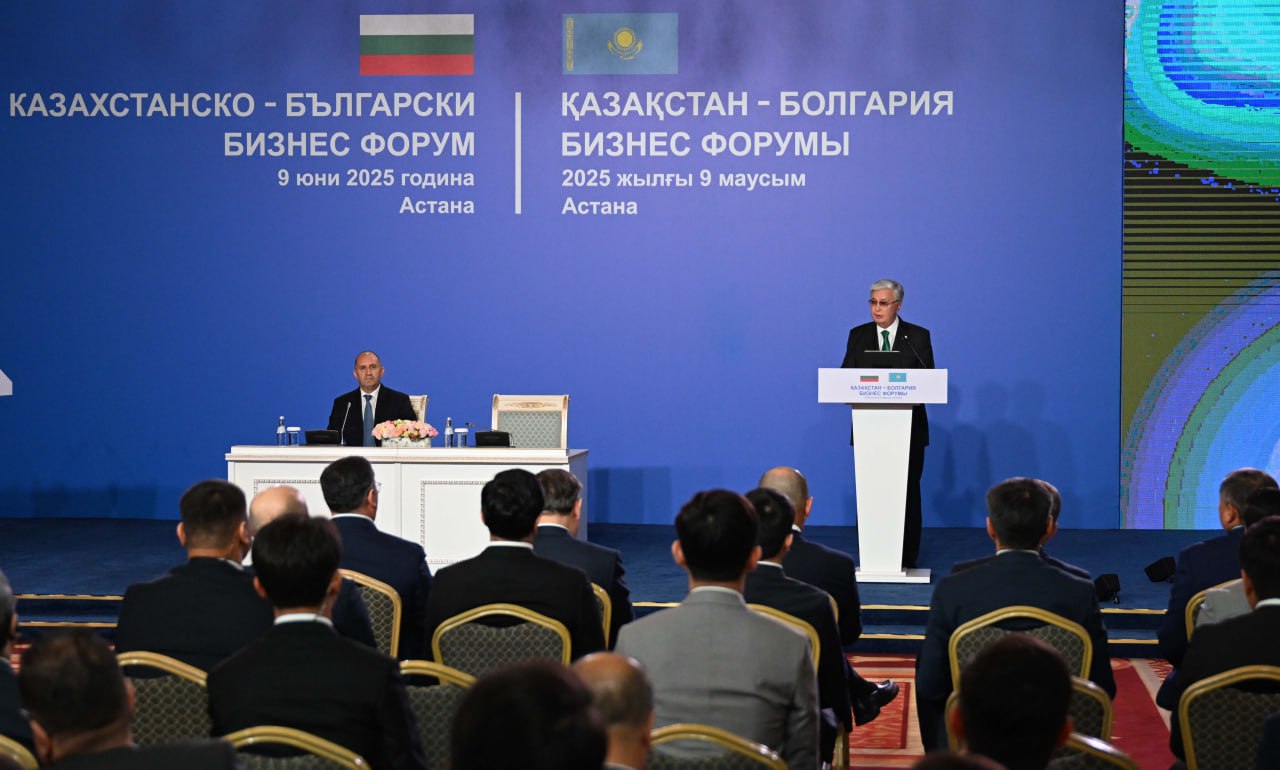Kazakhstan, Bulgaria Outline Economic Cooperation at Business Forum

ASTANA — Kazakhstan and Bulgaria identified new opportunities for cooperation in transport, energy, agribusiness, digital technologies, and pharmaceuticals during the Kazakhstan-Bulgaria Business Forum held June 9 in Astana as part of Bulgarian President Rumen Radev’s official visit.

Kazakhstan-Bulgaria Business Forum held June 9 in Astana. Photo credit: Akorda
President Kassym-Jomart Tokayev stated that the forum could serve as a launchpad for expanding bilateral trade and investment, noting that the existing Kazakhstan-Bulgaria Intergovernmental Commission on Economic Cooperation could play a crucial role in accelerating practical ties.
Middle Corridor integration with Black Sea logistics
Kazakhstan highlighted transport connectivity as a strategic priority. Tokayev noted that Kazakhstan accounts for 85% of all overland freight between Europe and China and is investing in expanding the Trans-Caspian International Transport Route (TITR), also known as the Middle Corridor.
“Thanks to the expanding infrastructure of the Middle Corridor, including modern railways, dry ports, and logistics centers, we are connecting East and West more efficiently than ever before. Last year, cargo traffic through this route grew by 62%, reaching 4.5 million tons. Capacity is expected to rise to 10 million tons by 2028,” said Tokayev.
He added that Bulgaria’s BMF Port Burgas is expected to join the Middle Corridor, linking Central Asia to the Black Sea and further integrating regional transport infrastructure.
Green energy and nuclear power projects
Kazakhstan proposed cooperation in the energy sector, particularly in renewables and nuclear energy. The country currently operates over 150 renewable energy facilities with a total capacity exceeding three gigawatts.
“Kazakhstan is an attractive destination for international investors in green energy,” said Tokayev.
He also mentioned Kazakhstan’s role in the Black Sea Energy initiative and the ongoing efforts to increase natural gas production through geological exploration and international partnerships.
“As a global leader in uranium production, our country has launched the process of building nuclear power plants to expand our energy capacity, which in turn will have a positive impact on our economic cooperation,” he said.
Grain exports and investment in meat processing
Tokayev outlined Kazakhstan’s agricultural export capabilities, noting that the country exports wheat and flour to more than 70 countries.
“Kazakhstan supplies over eight million tons of wheat and two million tons of flour annually, ranking among the top ten global grain exporters,” he said.
He proposed expanding collaboration in meat, dairy, honey, and vegetable oil production, and welcomed investment by the Bulgarian company Lekkerbek in a meat processing facility in Shymkent.
“This project will introduce advanced technologies and boost the region’s export potential,” said Tokayev.
Digital infrastructure and AI development
Kazakhstan also presented areas for collaboration in digital transformation. The country is building supercomputers, data centers, and launching an International Center for Artificial Intelligence to support a tech-driven economy.
“We are developing pilot zones like CryptoCity, where digital currencies will be integrated into daily transactions and broader economic activity,” said Tokayev.
He suggested potential exchanges between the two countries in artificial intelligence, referencing Bulgaria’s recent advancements in AI and supercomputing.
Pharmaceuticals and financial services
Tokayev also highlighted the pharmaceutical sector as another area for cooperation and invited Bulgarian businesses to explore opportunities within the Astana International Financial Centre (AIFC), describing it as a platform that offers legal and financial infrastructure for international investors.




